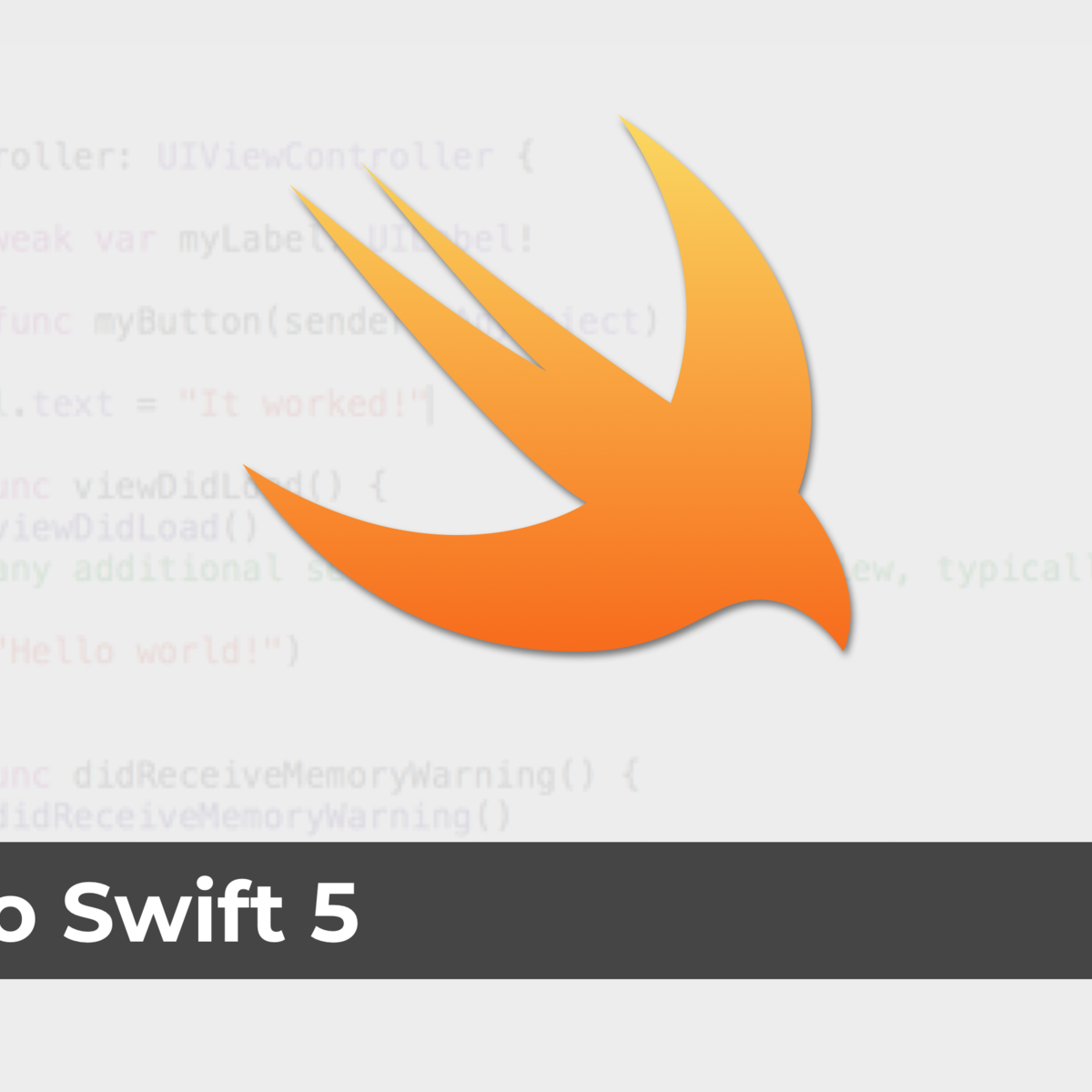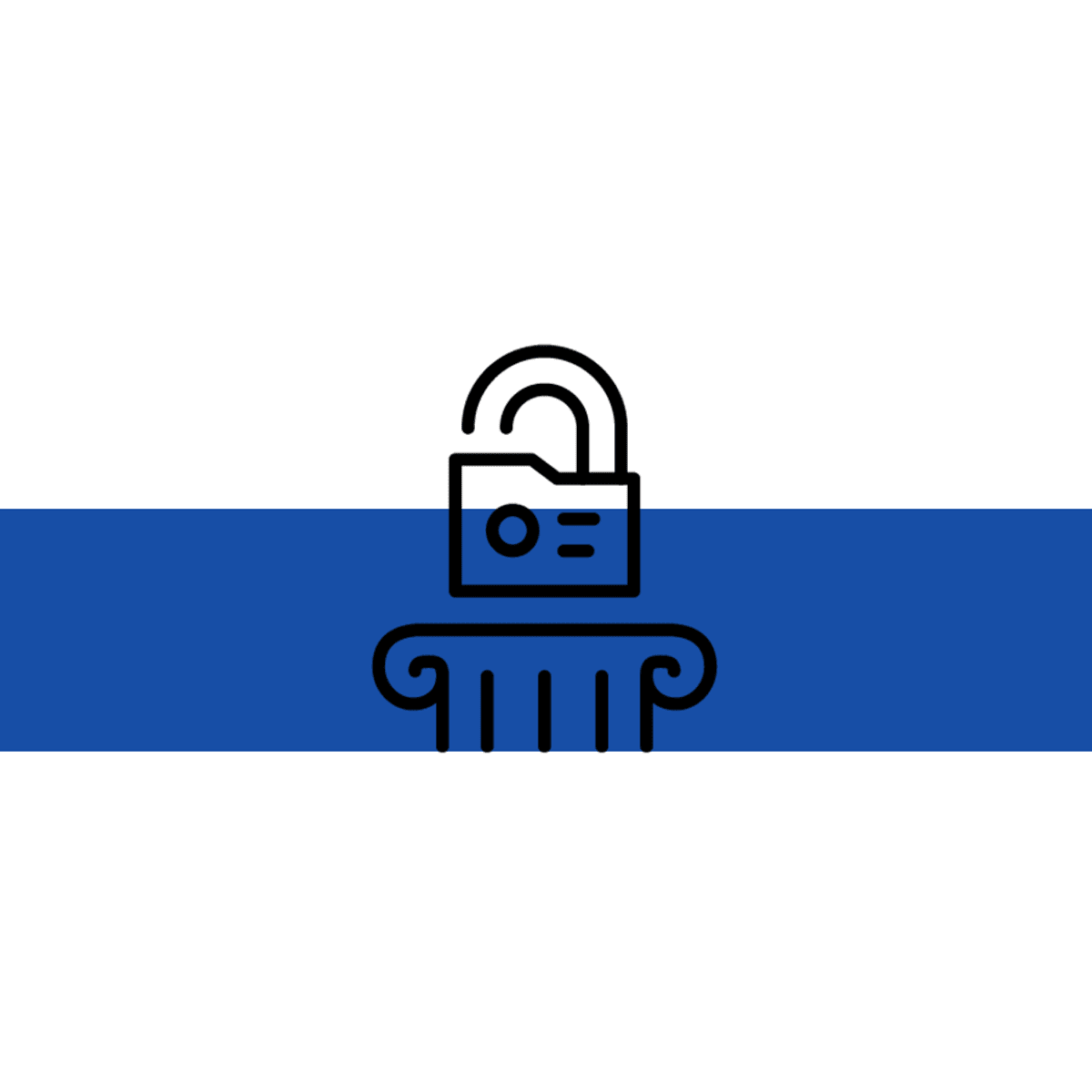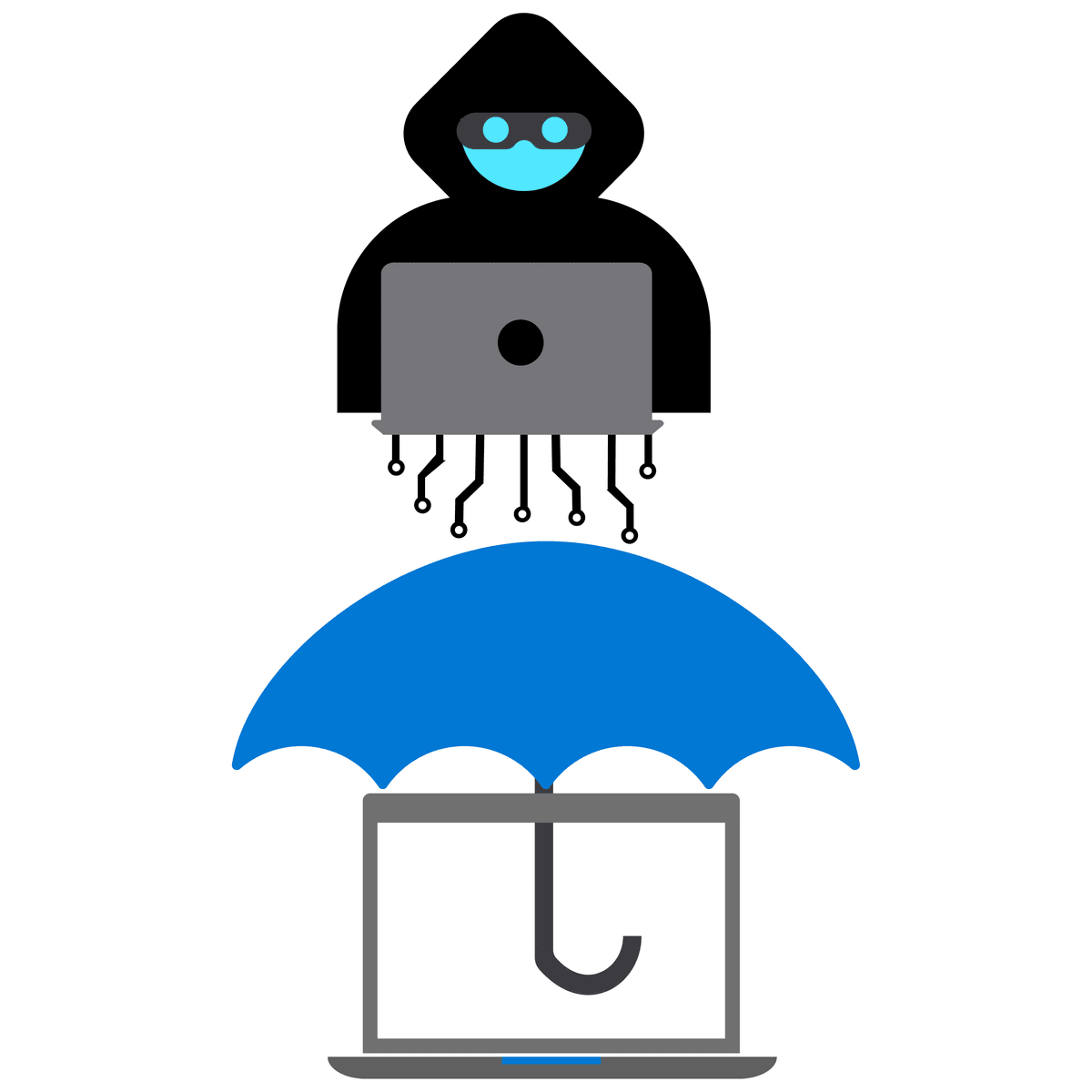Information Security Analyst
A Comprehensive Guide to Becoming an Information Security Analyst
An Information Security Analyst, often called a cybersecurity analyst, plays a crucial role in protecting an organization's computer networks and systems. At a high level, these professionals are the guardians of digital information, tasked with preventing data breaches, cyberattacks, and unauthorized access. They are essential in a world increasingly reliant on technology and data, where the security of information is paramount for the functioning and reputation of businesses and institutions.
Working as an Information Security Analyst can be incredibly engaging. It's a field that is constantly evolving, presenting new challenges and requiring continuous learning to stay ahead of emerging threats. Imagine the intellectual stimulation of outsmarting cybercriminals, the satisfaction of implementing robust security measures that protect critical data, or the thrill of investigating and resolving a security incident. These are some of the aspects that individuals in this career find deeply rewarding. Furthermore, the demand for these professionals is exceptionally high, offering strong job security and the opportunity to work in a wide variety of industries.
What Does an Information Security Analyst Do?
Information Security Analysts are responsible for a wide array of tasks aimed at safeguarding an organization's digital assets. Their work is critical in maintaining the confidentiality, integrity, and availability of data and information systems. This role requires a proactive approach to security, constantly anticipating potential threats and implementing measures to mitigate them.
These professionals spend a significant amount of time planning, implementing, upgrading, and monitoring security measures. They are also responsible for assessing system vulnerabilities and proposing and implementing strategies to reduce risks. In the event of a security breach or virus, they are often the first responders. The work environment is typically in an office setting, although remote work is becoming increasingly common. Many analysts work more than 40 hours per week, especially when responding to security incidents.
Key Responsibilities Day-to-Day
The daily life of an Information Security Analyst is dynamic and multifaceted. A significant portion of their time involves actively monitoring networks and systems for any signs of suspicious activity. This includes keeping an eye on firewalls, intrusion detection systems, and other security software to identify potential threats in real-time. They are also deeply involved in analyzing security alerts and investigating potential security incidents.
Another core responsibility is vulnerability management. This involves regularly scanning systems and applications for weaknesses that could be exploited by attackers. Once vulnerabilities are identified, analysts work on prioritizing them and coordinating remediation efforts. This often means collaborating with IT teams to apply patches, reconfigure systems, or implement other security controls.
Responding to security incidents is a critical function. When a breach or attack occurs, analysts are on the front lines, working to contain the threat, eradicate it, and recover affected systems. This can be a high-pressure part of the job, requiring quick thinking and decisive action. After an incident, they will typically conduct a post-incident analysis to understand what happened and how to prevent similar events in the future.
Ensuring Compliance and Upholding Regulations
Information Security Analysts play a vital role in ensuring that their organizations comply with various legal and regulatory requirements related to data security and privacy. This is becoming increasingly important as governments worldwide implement stricter data protection laws. Examples of such regulations include the General Data Protection Regulation (GDPR) in Europe and the Health Insurance Portability and Accountability Act (HIPAA) in the United States, which governs the security and privacy of health information.
Analysts must stay up-to-date on these regulations and ensure that the organization's security policies and practices align with them. This often involves conducting regular security audits, documenting compliance efforts, and working with legal and management teams to address any compliance gaps. They might also be involved in developing and delivering security awareness training to employees to ensure that everyone in the organization understands their role in protecting sensitive information. Adherence to frameworks like those provided by the National Institute of Standards and Technology (NIST) is also a common responsibility.
These courses offer a foundational understanding of cybersecurity principles and compliance, which are crucial for aspiring Information Security Analysts. They cover key concepts and regulations that professionals in this field encounter regularly.
Essential Technical Skills and Tools
To excel as an Information Security Analyst, a strong foundation in technical skills is indispensable. These professionals must be adept at using a variety of tools and technologies to protect their organizations from cyber threats. The technical landscape is constantly changing, so a commitment to continuous learning is also crucial for staying effective in this role.
Proficiency with security tools is paramount. This includes hands-on experience with firewalls, intrusion detection and prevention systems (IDPS), and security information and event management (SIEM) systems. Understanding how these tools work and how to configure and manage them effectively is a core competency.
Mastering Security Technologies
A deep understanding of network security protocols, such as TCP/IP, DNS, HTTP/S, and others, is fundamental for an Information Security Analyst. [vap14p] They need to know how data flows across networks and how to secure these communication channels. This includes expertise in encryption methods and technologies, ensuring that sensitive data is protected both in transit and at rest. [957thx]
Knowledge of operating system security for various platforms (e.g., Windows, Linux) is also essential. [ewm5t4] Analysts must understand how to harden operating systems, manage user permissions, and identify and mitigate OS-level vulnerabilities. Familiarity with virtualization technologies and cloud security principles is also increasingly important as more organizations move their infrastructure and data to the cloud.
For those looking to gain hands-on experience with fundamental security technologies and operating systems, these courses provide practical instruction.
Proficiency in SIEM and Analytical Tools
Security Information and Event Management (SIEM) tools are central to the work of many Information Security Analysts. [bxgkqh] These platforms collect and aggregate log data from various sources across an organization's IT infrastructure, providing a centralized view of security events. Analysts use SIEM tools like Splunk or LogRhythm to monitor for suspicious activity, investigate security incidents, and generate reports for compliance and auditing purposes.
Proficiency in using SIEM tools involves more than just navigating the interface. Analysts need to be skilled in creating correlation rules to detect complex attack patterns, developing custom dashboards for visualizing security data, and using query languages to search and analyze log data effectively. The ability to interpret the data provided by SIEM tools and translate it into actionable intelligence is a key skill.
Beyond SIEM, analysts often use a variety of other analytical tools, including network traffic analyzers like Wireshark, vulnerability scanners, and forensic tools. Familiarity with these tools and the ability to interpret their output are crucial for identifying threats and understanding security incidents.
This course offers an introduction to SIEM concepts using a popular tool in the industry, which can be a great starting point for aspiring analysts.
The Role of Scripting and Automation
Scripting languages such as Python and PowerShell are increasingly valuable for Information Security Analysts. These languages can be used to automate repetitive tasks, develop custom security tools, and analyze large datasets more efficiently. For example, an analyst might write a Python script to automate the process of parsing log files, or a PowerShell script to quickly gather security-related information from multiple Windows systems.
Automation helps free up analysts' time from mundane tasks, allowing them to focus on more complex and strategic security challenges. While deep programming expertise isn't always required, a basic understanding of scripting concepts and the ability to write and modify simple scripts can significantly enhance an analyst's effectiveness and productivity.
For individuals interested in developing their scripting skills, these courses offer introductions to languages commonly used in cybersecurity.
These books offer practical guidance on using scripting for security tasks and are valuable resources for any aspiring analyst looking to enhance their automation capabilities.
Educational Pathways and Certifications
Embarking on a career as an Information Security Analyst typically involves a combination of formal education, industry certifications, and practical experience. While the path can vary, understanding the common requirements and available resources can help aspiring analysts navigate their journey effectively. The field is welcoming to individuals from diverse backgrounds, provided they have the passion and dedication to acquire the necessary knowledge and skills.
For those new to the field or considering a career change, it's natural to feel a mix of excitement and perhaps some apprehension. Cybersecurity can seem daunting, but with a structured approach to learning and a commitment to continuous development, it is an achievable goal. Remember that many successful analysts started with a foundational understanding and built their expertise over time. Setting realistic expectations and celebrating milestones along the way can make the journey more manageable and rewarding.
Degrees and Formal Education
A bachelor's degree in a computer-related field is often the typical entry-level education for Information Security Analysts. Common degree programs include Computer Science, Cybersecurity, Information Technology, or a closely related discipline. These programs provide a strong theoretical foundation in areas such as networking, operating systems, programming, and database management, all of which are relevant to the role of an analyst. Coursework often covers fundamental security principles, cryptography, and network defense.
While a bachelor's degree is common, it's not always a strict requirement, especially for individuals who can demonstrate equivalent knowledge and skills through experience or certifications. Some employers may also value associate's degrees or even post-secondary certificates, particularly when combined with hands-on experience. For those aiming for more senior or specialized roles, or for individuals transitioning from other fields, a master's degree in Cybersecurity or a related area can provide a competitive edge and deeper expertise.
OpenCourser offers a vast catalog of online courses that can serve as excellent foundational building blocks or supplement formal degree programs. Exploring options in Computer Science or specifically Cybersecurity can provide a structured learning path.
These introductory courses can help build a solid understanding of cybersecurity fundamentals, which is essential regardless of your formal education level.
Key Certifications for Advancement
Industry certifications play a significant role in the cybersecurity field and are often highly valued by employers. They demonstrate a certain level of knowledge and competency in specific areas of information security. For aspiring Information Security Analysts, obtaining relevant certifications can enhance their resume, validate their skills, and potentially lead to better job opportunities and higher salaries.
Some of the most recognized entry-level to mid-level certifications include CompTIA Security+, Certified Ethical Hacker (CEH), and (ISC)²'s Systems Security Certified Practitioner (SSCP). CompTIA Security+ is often considered a foundational certification, covering core security concepts and practices. CEH focuses on penetration testing methodologies and tools, while SSCP targets operational IT security roles.
For more experienced professionals or those aiming for senior roles, certifications like the Certified Information Systems Security Professional (CISSP) are highly regarded. The CISSP is a globally recognized standard for information security professionals, covering a broad range of security domains. Other specialized certifications focus on areas like cloud security (e.g., CCSP), auditing (e.g., CISA), or incident response (e.g., GCIH).
While not direct certification preparation courses, these offerings cover many topics aligned with popular certifications and can bolster your understanding of key security domains.
These books are often recommended for individuals preparing for advanced security certifications and provide in-depth knowledge crucial for career progression.
The Value of Bootcamps and Self-Study
Cybersecurity bootcamps have emerged as an alternative or supplementary pathway into the field. These intensive, short-term training programs aim to equip individuals with practical, job-ready skills in a condensed timeframe. Bootcamps often focus on hands-on labs and real-world scenarios, which can be beneficial for gaining practical experience quickly.
Self-study is also a crucial component of an Information Security Analyst's development. The cybersecurity landscape is constantly evolving, with new threats and technologies emerging regularly. A commitment to lifelong learning is essential. Online resources, including courses on platforms like OpenCourser, industry blogs, security news websites, and participation in online communities and forums, are invaluable for staying current. Hands-on practice, such as setting up a home lab to experiment with security tools and techniques, or participating in capture-the-flag (CTF) competitions, can also significantly enhance practical skills.
For individuals charting their own learning path, OpenCourser provides tools to create and manage course lists, effectively building a personalized curriculum. The OpenCourser Learner's Guide also offers valuable tips on how to structure self-learning and make the most of online educational resources.
These courses are designed for self-paced learning and cover a range of cybersecurity topics, making them suitable for self-study efforts.
Career Path and Progression
The career path for an Information Security Analyst offers numerous opportunities for growth and specialization. As with many professions, progression often depends on a combination of experience, continuous learning, certifications, and performance. The field is dynamic, allowing individuals to tailor their career trajectory to their interests and strengths.
For those starting out, it's important to build a solid foundation and gain practical experience. As you develop your skills and knowledge, new avenues will open up, leading to more senior and specialized roles. Don't be discouraged if the path isn't always linear; the ability to adapt and learn is highly valued in cybersecurity.
Entry-Level Opportunities
Individuals often enter the information security field through various IT roles that provide foundational experience. Positions like IT support specialist, network administrator, or systems administrator can offer valuable insights into how systems and networks operate, which is crucial for understanding how to secure them. Some may start directly in entry-level security roles such as Security Technician, Junior Security Analyst, or SOC (Security Operations Center) Analyst Tier 1.
In these initial roles, responsibilities might include monitoring security alerts, assisting with vulnerability scanning, helping with incident response under supervision, and managing user access. These positions provide critical hands-on experience with security tools and processes. Employers often look for candidates with a relevant bachelor's degree and perhaps an entry-level certification like CompTIA Security+.
These courses are excellent for individuals looking to understand the foundational roles and responsibilities within cybersecurity operations.
Mid-Career Advancement and Specialization
With a few years of experience and potentially further certifications, Information Security Analysts can advance to more specialized and senior roles. Options include becoming a Security Engineer, who focuses on designing and building secure systems and networks. Another path is that of a Penetration Tester (or Ethical Hacker), who proactively attempts to identify and exploit vulnerabilities in an organization's defenses to help improve them.
Other mid-career roles might involve specializing in areas like digital forensics (investigating cybercrimes), incident response (leading efforts to handle security breaches), threat intelligence (analyzing threat actors and their methods), or cloud security (securing cloud-based infrastructure and applications). These roles typically require deeper technical expertise in their respective areas and often involve more responsibility and autonomy.
These courses can provide the specialized knowledge needed for mid-career advancements in areas like penetration testing and security engineering.
Leadership and Senior Management Roles
Experienced Information Security Analysts with a strong track record and leadership qualities can progress into senior management and executive positions. One common advanced role is that of a Security Architect, who is responsible for designing and overseeing the implementation of an organization's overall security strategy and infrastructure. [zzwptd]
Further advancement can lead to roles like Security Manager, who leads teams of analysts and other cybersecurity personnel, or ultimately, Chief Information Security Officer (CISO). The CISO is a top-level executive responsible for the entire information security program of an organization, aligning security initiatives with business goals, managing budgets, and reporting to other senior executives and the board of directors. [mvd360] These leadership roles require not only deep technical understanding but also strong communication, strategic thinking, and business acumen.
These courses delve into the strategic and managerial aspects of cybersecurity, essential for those aspiring to leadership positions.
Industry Trends and Emerging Technologies
The field of information security is characterized by rapid evolution, driven by constantly changing cyber threats and the continuous emergence of new technologies. Staying abreast of these trends is not just beneficial but essential for Information Security Analysts to remain effective in their roles. Understanding how new technologies impact the threat landscape and how they can be leveraged for defense is a key aspect of professional development in this career.
Organizations are increasingly recognizing the strategic importance of cybersecurity, leading to greater investment in security technologies and personnel. However, this also means that the challenges faced by analysts are becoming more complex. Adapting to these changes requires a proactive approach to learning and a willingness to embrace new tools and methodologies.
The Impact of AI and Machine Learning
Artificial Intelligence (AI) and Machine Learning (ML) are significantly impacting the cybersecurity landscape. On one hand, attackers are leveraging AI to create more sophisticated and automated attacks, such as AI-powered phishing campaigns or malware that can adapt to defenses. This necessitates that security professionals also understand and utilize AI/ML for defensive purposes.
AI and ML are being integrated into various security tools to enhance threat detection, automate routine tasks, and improve incident response times. For example, AI algorithms can analyze vast amounts of security data to identify subtle patterns and anomalies that might indicate a breach, often faster and more accurately than human analysts alone. While AI can automate many tasks, it is generally seen as a tool to augment human capabilities rather than replace cybersecurity professionals entirely. Analysts will increasingly need to understand how to work with AI-powered tools, interpret their outputs, and manage their configurations.
These courses explore the intersection of AI and cybersecurity, providing insights into how these technologies are shaping the future of the field.
Adoption of Zero Trust Architecture
Zero Trust Architecture (ZTA) is a security model that is gaining widespread adoption. Traditional security models often relied on a "trust but verify" approach, where entities inside the network perimeter were implicitly trusted. Zero Trust, in contrast, operates on the principle of "never trust, always verify." This means that every user, device, application, and network flow is treated as untrusted by default, and access is granted on a least-privilege basis only after strict verification.
The shift towards remote work and cloud computing has accelerated the adoption of Zero Trust, as traditional network perimeters have become less relevant. Implementing a Zero Trust architecture involves various technologies and strategies, including multi-factor authentication (MFA), micro-segmentation, identity and access management (IAM), and continuous monitoring. Information Security Analysts are often involved in designing, implementing, and maintaining Zero Trust environments. Gartner predicts that 60% of enterprises will embrace Zero Trust as a starting point for security by 2025.
Cybersecurity in the Age of Remote Work
The widespread shift to remote and hybrid work models has introduced new cybersecurity challenges. With employees accessing corporate resources from various locations and potentially using personal devices, the traditional attack surface has expanded significantly. Unsecured home Wi-Fi networks, the use of personal devices (BYOD), and an increased susceptibility to phishing and social engineering attacks are among the key risks associated with remote work.
Information Security Analysts are tasked with developing and implementing strategies to secure remote work environments. This includes ensuring secure remote access through VPNs or Zero Trust Network Access (ZTNA), implementing strong endpoint security measures, providing security awareness training focused on remote work risks, and ensuring that data protection policies are adhered to regardless of location. The ability to manage security for a distributed workforce is becoming an increasingly important skill.
These courses address the specific security considerations and advanced techniques relevant to securing remote work environments.
Ethical and Legal Dimensions
The work of an Information Security Analyst is not solely technical; it also carries significant ethical and legal responsibilities. These professionals are entrusted with protecting sensitive data and ensuring the privacy of individuals. Navigating the complex web of laws, regulations, and ethical considerations is a critical aspect of the role. Decisions made by analysts can have far-reaching consequences for individuals, organizations, and even society at large.
A strong ethical compass and a thorough understanding of applicable laws are therefore essential. This involves more than just compliance; it means fostering a culture of security and privacy within the organization and making decisions that prioritize the protection of information and individual rights. The tension between robust security measures and user convenience or privacy often requires careful balancing.
Navigating Data Privacy Laws
Information Security Analysts must be well-versed in the various data privacy laws and regulations that apply to their organization. These laws, such as GDPR, HIPAA, CCPA (California Consumer Privacy Act), and others, dictate how organizations must collect, process, store, and protect personal data. [1g1b05, dluqz0, g4pwj3] Failure to comply can result in significant financial penalties, reputational damage, and legal action.
Analysts contribute to compliance by implementing technical security controls to protect data, conducting risk assessments to identify potential privacy vulnerabilities, and ensuring that data handling practices align with legal requirements. They may also be involved in responding to data subject access requests or managing data breach notifications, both of which are common components of modern privacy laws. Staying updated on changes to these laws and understanding their implications for security practices is an ongoing responsibility.
Understanding the legal framework surrounding data protection is crucial. These courses provide insights into key regulations and their impact on cybersecurity practices.
The World of Ethical Hacking and Responsible Disclosure
Ethical hacking, also known as penetration testing, is a proactive security practice where analysts simulate cyberattacks to identify vulnerabilities before malicious actors can exploit them. This requires a strong ethical framework, as ethical hackers must operate within legal boundaries and obtain explicit permission before conducting any tests. The goal is to improve security, not to cause harm or illegally access information.
Responsible disclosure is a related concept that outlines how security researchers and ethical hackers should report vulnerabilities they discover to the affected organization. This typically involves privately notifying the organization and allowing them a reasonable amount of time to fix the vulnerability before any public disclosure is made. Information Security Analysts may be involved in coordinating their organization's response to vulnerability disclosures or participating in bug bounty programs, where organizations reward individuals for finding and reporting security flaws.
These courses provide a look into the world of ethical hacking, a key skill for many security professionals.
Balancing Security Needs with User Experience
One of the ongoing challenges for Information Security Analysts is finding the right balance between implementing robust security measures and ensuring a positive user experience. Overly restrictive security controls can frustrate users and hinder productivity, potentially leading them to find workarounds that bypass security altogether. On the other hand, lax security can leave the organization vulnerable to attacks.
Effective analysts understand the importance of user-centric security. This involves designing security solutions that are as transparent and unobtrusive as possible while still providing adequate protection. It also means communicating effectively with users about why certain security measures are necessary and providing training to help them adopt secure practices. Striking this balance requires technical expertise, empathy, and strong communication skills.
Global Market and Salary Insights
The demand for Information Security Analysts is robust globally, driven by the increasing frequency and sophistication of cyber threats across all sectors. This high demand translates into strong job prospects and competitive salaries for qualified professionals. Understanding the market dynamics can help aspiring and current analysts make informed career decisions.
The U.S. Bureau of Labor Statistics (BLS) projects a 33% growth in employment for information security analysts from 2023 to 2033, which is much faster than the average for all occupations. This translates to approximately 17,300 job openings projected each year over the decade. This growth highlights the critical need for cybersecurity expertise in the modern economy.
Salary Expectations and Influencing Factors
Salaries for Information Security Analysts can vary significantly based on factors such as experience, education, certifications, geographic location, and the specific industry and size of the employing organization. According to the BLS, the median annual wage for information security analysts was $124,910 in May 2024. Some sources report a median salary around $105,000 globally in 2024, with a typical range between $80,000 and $134,600. ZipRecruiter data from May 2025 indicates an average annual pay of $96,652 in the United States, with ranges typically falling between $73,500 and $114,500.
Professionals with advanced degrees, significant experience, and high-demand certifications often command higher salaries. Cybersecurity hotspots, often major metropolitan areas with a high concentration of tech companies or government agencies, may also offer higher compensation. Bonuses can also form a part of the compensation package, often tied to individual and company performance.
For those seeking to maximize their earning potential, these resources offer insights into salary negotiation and career advancement within the cybersecurity field.
High-Demand Industries
Information Security Analysts are in demand across virtually every industry, as nearly all organizations rely on digital systems and store sensitive data. However, some sectors exhibit particularly strong demand. The computer systems design and related services industry, along with the management of companies and enterprises, are among the largest employers of these professionals.
Industries handling large volumes of sensitive data, such as finance, healthcare, and government, also have a significant need for cybersecurity expertise. The e-commerce sector, a prime target for hackers due to the financial data it processes, heavily relies on security analysts to protect customer information and maintain trust. Additionally, manufacturing, particularly electronics and critical infrastructure, requires robust security to protect against threats to operational technology and intellectual property.
Freelance vs. In-House Opportunities
Information Security Analysts can find opportunities in both traditional in-house roles and as freelance consultants. In-house positions involve working directly for a single organization, becoming deeply familiar with its systems, culture, and specific security needs. This path often offers stability, benefits, and clear career progression within the company.
Freelancing or consulting offers more flexibility and variety, allowing analysts to work with multiple clients across different industries. This can provide exposure to a wider range of security challenges and technologies. However, freelance work also requires strong self-management skills, business development capabilities, and the ability to adapt quickly to new environments. The choice between in-house and freelance often depends on individual preferences for work-life balance, stability, and the type of work an analyst finds most engaging.
Regardless of the employment model, continuous learning is key. OpenCourser's Browse page can help professionals find courses to upskill or specialize in new areas of cybersecurity.
Confronting Challenges and Risks
While a career as an Information Security Analyst offers many rewards, it also comes with its own set of challenges and risks. The nature of the work, which involves constantly dealing with evolving threats and high-stakes situations, can be demanding. Understanding these potential difficulties can help individuals prepare for the realities of the profession and develop strategies to navigate them effectively.
It's important for those considering this career to have a realistic perspective. The excitement of cybersecurity is often balanced by periods of intense pressure and the need for unwavering vigilance. However, for those who are passionate about problem-solving and protecting information, these challenges can also be part of what makes the career engaging.
Dealing with High-Stress Environments and Burnout
Information Security Analysts often work in high-stress environments, particularly when responding to active security incidents or dealing with critical vulnerabilities under tight deadlines. The constant pressure to stay ahead of attackers and the potential consequences of a security breach can contribute to stress and, in some cases, burnout. Long hours may be required, especially during emergencies, which can impact work-life balance.
Developing coping mechanisms for stress and prioritizing self-care are important for longevity in this field. This might include setting boundaries, taking regular breaks, engaging in hobbies outside of work, and seeking support from colleagues or mentors. Organizations also play a role in mitigating burnout by fostering a supportive work culture, providing adequate resources, and promoting realistic workloads where possible.
Keeping Pace with Evolving Threats
The cybersecurity landscape is in a perpetual state of flux. Attackers are constantly developing new techniques and exploiting emerging vulnerabilities. This means that Information Security Analysts must be committed to continuous learning and professional development simply to keep pace. What constitutes a best practice today might be outdated tomorrow.
This requires analysts to dedicate time to reading industry publications, attending webinars and conferences, taking training courses, and experimenting with new technologies. The need to constantly update one's knowledge and skills can be intellectually stimulating but also demanding. A proactive and curious mindset is essential for success in this ever-changing field.
These courses focus on emerging threats and advanced security concepts, helping analysts stay current.
Resource Constraints in Smaller Organizations
While large enterprises often have dedicated security teams and substantial budgets, smaller organizations may face resource constraints. An Information Security Analyst in a smaller company might be the sole security professional or part of a very small team, responsible for a wide range of security tasks with limited tools and funding. This can be both a challenge and an opportunity.
The challenge lies in trying to provide comprehensive security with limited resources. Analysts in such environments need to be highly adaptable, resourceful, and adept at prioritizing risks. The opportunity comes from the broad experience gained and the potential to have a significant impact on the organization's security posture. It often requires creative problem-solving and the ability to make the most of available open-source tools and community resources.
Frequently Asked Questions (Career Focus)
Embarking on or transitioning into a career as an Information Security Analyst often brings up many questions. This section aims to address some of the common queries related to career paths, skill development, and the overall outlook for this profession. We hope this information provides clarity and helps you in your decision-making process.
Remember, every individual's journey is unique, and there are many paths to success in cybersecurity. The key is to be proactive, continuously learn, and seek out opportunities that align with your interests and goals.
What entry-level roles can lead to becoming an Information Security Analyst?
Many Information Security Analysts begin their careers in broader IT roles before specializing in security. Positions like IT Support Specialist, Network Administrator, Systems Administrator, or even a Help Desk Technician can provide a valuable foundation. These roles offer exposure to the underlying technologies and infrastructure that security analysts are tasked with protecting.
Some individuals may also start in more security-focused entry-level positions such as a Security Operations Center (SOC) Analyst (Tier 1), Junior Penetration Tester, or a Security Intern. These roles provide direct experience with security tools, processes, and incident handling from the outset.
Regardless of the starting point, gaining practical experience with networking, operating systems, and basic security concepts is crucial. Online courses and certifications can also help bridge any knowledge gaps and make your resume more attractive to employers for analyst roles.
How critical are certifications for career advancement?
Certifications are quite important in the cybersecurity field and can significantly aid in career advancement. While experience and practical skills are paramount, certifications serve as a standardized way to validate your knowledge and expertise in specific areas of information security. Many employers actively look for candidates with relevant certifications, especially for mid-level and senior roles.
Entry-level certifications like CompTIA Security+ can help you get your foot in the door. As you progress, more advanced certifications such as CISSP, CISM (Certified Information Security Manager), or specialized certifications in areas like ethical hacking (CEH), cloud security (CCSP), or forensics (GCFA/GCFH) can open doors to higher-paying jobs and leadership positions. Certifications often require ongoing education to maintain, which also encourages continuous learning – a vital aspect of a cybersecurity career.
Can I transition from IT support to cybersecurity?
Yes, transitioning from IT support to cybersecurity is a very common and viable career path. IT support roles provide excellent foundational knowledge of operating systems, networks, hardware, and troubleshooting – all ofwhich are highly relevant to cybersecurity. You'll likely have experience with user issues, system configurations, and possibly even initial incident response, which are valuable assets.
To make the transition, focus on acquiring specific cybersecurity skills and knowledge. This can be done through self-study, online courses, bootcamps, and pursuing entry-level security certifications. Look for opportunities to take on security-related tasks in your current IT support role, if possible. Networking with cybersecurity professionals and tailoring your resume to highlight transferable skills and any security projects or learning you've undertaken will also be beneficial.
Many resources on OpenCourser can assist with this transition, particularly within the IT & Networking and Cybersecurity categories.
What soft skills are essential for success?
While technical skills are crucial, soft skills are equally important for a successful career as an Information Security Analyst. Strong analytical and problem-solving skills are essential for identifying threats, investigating incidents, and developing effective security solutions. Attention to detail is also critical, as overlooking small clues can have significant consequences.
Excellent communication skills, both written and verbal, are vital. Analysts need to explain complex technical issues to non-technical audiences, write clear and concise reports, and collaborate effectively with team members and other departments. Adaptability and a willingness to learn are also key, given the ever-changing nature of cybersecurity. Finally, maintaining a calm demeanor under pressure, especially during incident response, is a highly valued trait.
How does remote work affect job opportunities?
The rise of remote work has had a significant impact on job opportunities for Information Security Analysts, largely in a positive way for job seekers. Many cybersecurity tasks, such as monitoring systems, analyzing logs, and even incident response, can be performed effectively from a remote location. This has opened up a wider talent pool for employers and provided more flexibility for analysts.
However, remote work also introduces new security challenges, such as securing remote endpoints and home networks, which analysts must be equipped to handle. While many organizations now offer remote or hybrid positions for security analysts, some roles, particularly those involving physical security or highly sensitive on-premises infrastructure, may still require an on-site presence. Overall, the trend towards remote work has expanded opportunities and flexibility in this field.
What is the long-term job outlook for this role?
The long-term job outlook for Information Security Analysts is exceptionally strong. As organizations become increasingly reliant on technology and data, and as cyber threats continue to grow in volume and sophistication, the need for skilled professionals to protect digital assets will only intensify. The U.S. Bureau of Labor Statistics projects a 33% growth in employment for this role from 2023 to 2033, which is much faster than the average for all occupations.
This high demand is driven by factors including the increasing financial and reputational costs of data breaches, growing regulatory requirements for data protection, and the rapid adoption of new technologies like cloud computing and IoT, which expand the attack surface. Consequently, a career as an Information Security Analyst offers not only strong job security but also ample opportunities for growth and advancement in the years to come.
This book provides a roadmap for those looking to build a lasting career in this dynamic field.
Concluding Thoughts
The path to becoming an Information Security Analyst is one of continuous learning, adaptation, and dedication. It's a career that offers immense intellectual stimulation, the satisfaction of protecting critical assets, and strong prospects in a rapidly growing field. While the journey may present challenges, the rewards, both professional and personal, can be substantial. Whether you are just starting to explore this career, transitioning from another field, or looking to advance your existing cybersecurity skills, the resources and opportunities available are vast. With the right mindset and commitment, a fulfilling career safeguarding the digital world awaits.



















































